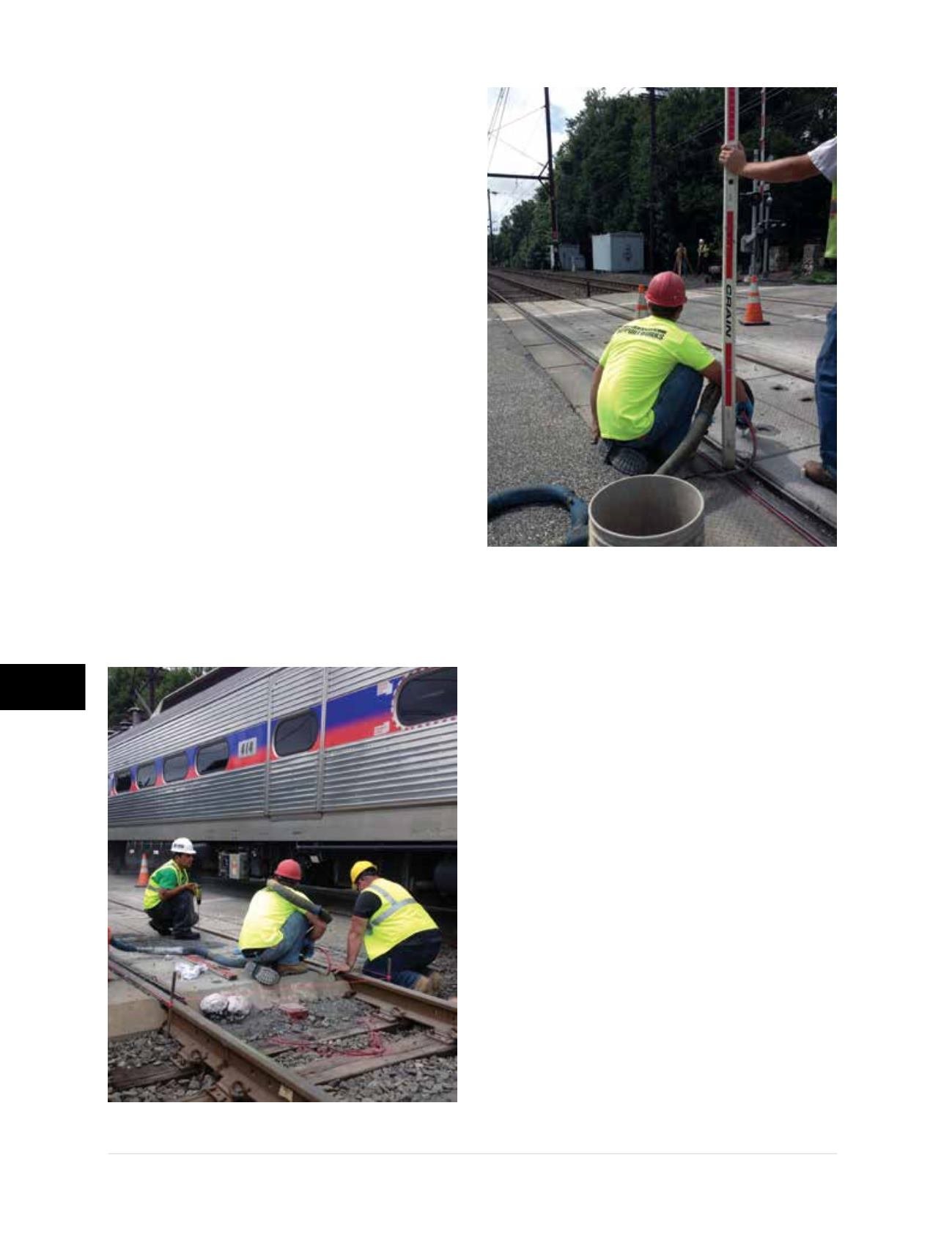

© 2014 Foundation Supportworks
®
,
Inc.
All Rights Reserved
p 336
Chapter 5
PolyLEVEL
®
Polyurethane Foam and Resin
CHAPTER 5
POLYLEVEL
®
POLYURETHANE FOAM AND RESIN
5.3 Benefits
There are many benefits and advantages to
using PolyLEVEL foams over other products,
repair options, and stabilization methods.
•
Lightweight
– PolyLEVEL polyurethane foams
weigh only 4 to 7 pounds per cubic foot (pcf)
when installed and confined beneath slabs
and pavements. Mudjacking material and
compacted fill soil can weigh 100 to 140
pcf. Very little load is therefore added to the
underlying, supporting soils.
•
High Capacity
– Lifting action is the result of
the expansion of the polymer, not the pressure
at which PolyLEVEL is injected beneath the
slab. This generally allows for lifting of higher
loads than mudjacking. Mudjacking relies
on the hydraulic pressure being contained
beneath the slab. When mudjacking slurry
“blows out”, additional lift is not possible.
•
Accurate Lift
– Installer technique and
product knowledge allows for precise lifting
(Figures 5.3.a1 and 5.3.a2)
. Each product has
a calculated reaction time.
•
Waterproof
– PolyLEVEL foam will not soften,
“dissolve” in water, or wash out. Material can
be used to under-seal slabs as well as stop a
variety of infrastructure leaks. PolyLEVEL slab
support products will not absorb water and are
therefore unaffected by freeze-thaw cycles.
•
Non-Invasive
– PolyLEVEL installation
equipment allows placement in tight and
limited access areas. There is less mess than
mudjacking and smaller
5/8
-inch holes required
for installation. Mudjacking typically requires 2
to 3-inch holes. PolyLEVEL installs quickly and
most small projects are completed in one day.
•
Quick Cure Time
– PolyLEVEL foam cures
quickly to allow even heavy traffic just 30
minutes after installation.
•
Environmentally Friendly
– The two parts (A
and R sides) react fully with each other and
create an inert product safe for the environment.
Use of PolyLEVEL to stabilize and re-level
slabs extends pavement life so less material is
removed and hauled off to landfills.
Figure 5.3.a1
Commuter train track
settled up to 2 inches at intersection
Figure 5.3.a2
Lifting precast concrete slabs and embedded
rails while monitoring with survey equipment












